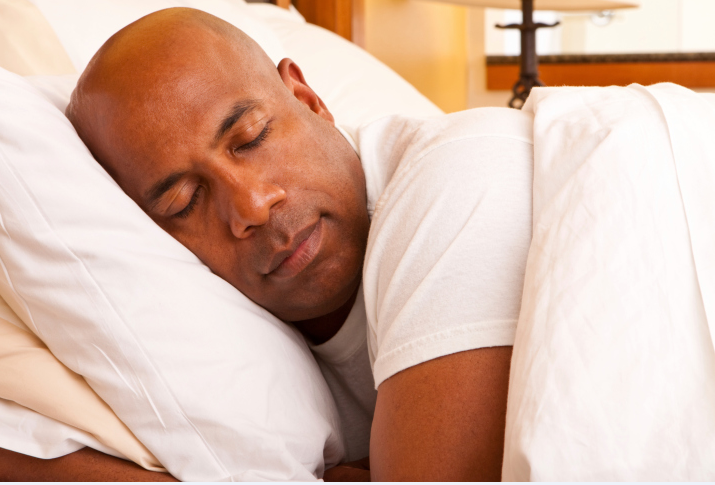 When’s the last time you had a good night’s sleep? Well, time isn’t the only thing lost when you lose sleep. According to a small 2013 study published in the journal SLEEP, a single night of sleep deprivation can cause you to lose brain tissue. Lack of sleep has also been linked to increased risk for heart disease, diabetes and even death. If you’ve been tossing and turning for the past few weeks, then it might be time to take a new approach – several actually. Keep reading to find out how to fall asleep faster and add more minutes to your life in the long run.
When’s the last time you had a good night’s sleep? Well, time isn’t the only thing lost when you lose sleep. According to a small 2013 study published in the journal SLEEP, a single night of sleep deprivation can cause you to lose brain tissue. Lack of sleep has also been linked to increased risk for heart disease, diabetes and even death. If you’ve been tossing and turning for the past few weeks, then it might be time to take a new approach – several actually. Keep reading to find out how to fall asleep faster and add more minutes to your life in the long run.
1. Get into a routine.
For a little consistency, try going to bed at the same time every single night. Even if you don’t fall asleep right away, that’s fine. Your body should get the memo after a couple of days or weeks.
2. Eliminate distractions.
We know it’s addicting, but checking your phone right before you get into bed is a bad idea because the minute you check it, you’ll be tempted to check everything else: Facebook, Twitter, Instagram, unread texts – they can wait! Need another reason to put that phone down? Exposure to blue light from smartphones, tablets and laptops can cause damage to your retina and ruin your eyesight!
CHECK IT OUT: Have Diabetes? Here’s Help…For Free!
3. Take a shower.
A nice, warm, relaxing shower or bath can help you sleep better. How? Well, the drop in body temperature gives us that tired, lethargic feeling right before we’re ready to hit the sack. It also slows down our essential metabolic functions, including heart rate and breathing.
4. Stop worrying.
This one is much easier said than done and we’re all guilty of doing it, but taking your worries into bed with you can keep you up all night and that’s no fun! Instead of thinking about everything you need to do the following day or replaying a stressful situation that happened earlier today over and over again in your mind, jot down your thoughts on a piece of paper so it’s out of your head and out of your bed.
5. Try relaxation techniques.
Picture yourself somewhere that relaxes you, whether it’s the beach, your favorite vacation spot, the mall, your grandmother’s house – it doesn’t matter! Learning to practice deep breathing techniques can also help with reducing stress and anxiety.
If none of these tricks work for you, it’s possible that you might be suffering from insomnia, so see your doctor right away. He or she can help identify if you have a sleep disorder.









